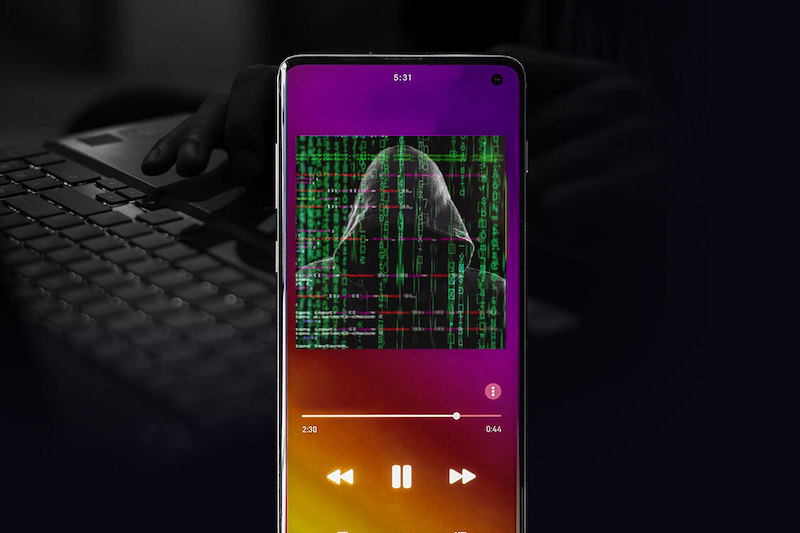Who are you? Where do you work?
Morgan Hayduk (Toronto) and Andrew Batey (Vancouver), co-founders & co-CEOs at Beatdapp.
What are you currently listening to?
MH: Dispatch to 16th Ave, Muscadine Bloodline.
AB: Drinkin’ Drinks, Urban Outlaws.
Give us a small insight into your daily routine…
As founders, we get to do a bit of everything, daily.
Client meetings, paperwork (no one tells you how much paperwork there will be), team meetings, product ideation, business development, new employee interviews, strategy planning… you name it, we’re probably doing it in any given week.
Over to you, Morgan & Andrew…
What is Streaming Fraud?
Merriam-Webster’s dictionary defines streaming fr… Just kidding. How lame of an opener would that be?!
We talk a lot about streaming fraud around at Beatdapp: in articles, podcasts, blog posts, you name it. To us, it feels like common knowledge. But actually finding a uniform definition isn’t as easy as you’d think. And if we’re going to solve it, we should probably agree on what it means.
To some, it’s “anything which isn’t fans listening to music they love.” To others, it’s akin to how “an athlete might take performance-enhancing drugs only to keep up with their peers.” For some, it’s still, “when an artist uses artificial means to increase their streams.”
None of those, however, feel totally adequate.
That’s because there are two different motivations, both of which need to be satisfied by a definition.
And when we talk about streaming fraud, we usually only cover one: the artist-centric view of the problem. In doing this we:
- Make artists seem responsible for WAY more fraud than they are;
- Trivialize legitimate criminal enterprise by making streaming fraud sound innocent.
We risk mischaracterizing the seriousness of the problem when we talk about it like: “aw-shucks, I accidentally bought some fake streams…” In reality, it’s often more nefarious, deliberate, and far removed from real artists. It’s the intentional uploading of algorithmically generated, nonsense, or copyright-infringing material for the sole purpose of diverting streaming revenues to the perpetrator at the expense of every other legitimate rights holder.
So we propose to define it as follows:
Streaming fraud is when an individual or group leverages bots, stolen accounts, or manipulated platform features to alter the perception of their own commercial success and/or steal streaming income that otherwise belongs to every legitimate artist and music industry professional.
Perception fraud – check. Financial fraud – check. A little less blame being ascribed to artists – check.
No definition is perfect, but we hope that this helps set the table for a more robust conversation about streaming fraud, and how to fight it.

Where should readers go to find out more? Is there any further reading or digital gurus to recommend?
Right here: Beatdapp.com
Also, check out the Beatdapp blog and here for our story, the problem and the solution.

